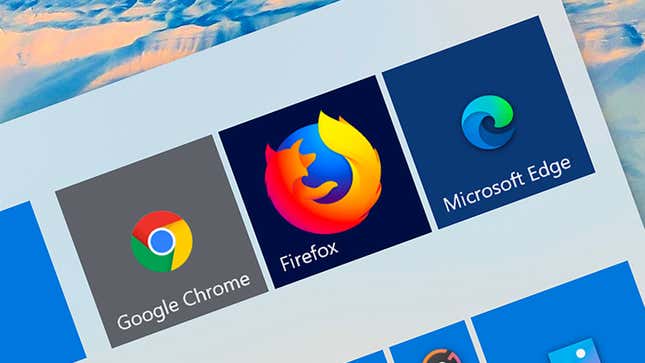
Taking a page from Google’s book, Microsoft is speeding up the release schedule for its Edge browser and will issue updates every four weeks instead of six weeks, the company announced Friday.
If reading that gave you déjà vu, that might be because Google issued a similar announcement last week in which it stated that it’s accelerating Chrome’s release cycle to—you guessed it—every four weeks instead of six weeks starting in Q3 2021.
“As contributors to the Chromium project, we look forward to the new 4-week major release cycle cadence that Google announced to help deliver that innovation to our customers even faster,” Microsoft said in a blog post.
This way, Edge users will gain faster access to Microsoft’s new features and security patches. And since, as of 2020, Edge has been rebuilt in Google’s open-source browser project Chromium, matching its release schedule with Chrome’s makes it easier to keep the two browsers in sync.
The new schedule will go into effect with Edge 94, which is currently slated for a September release. Also following Google’s lead, Microsoft is offering its enterprise customers the option of a longer, more manageable release cycle, which translates to a release every eight weeks along with biweekly security updates for “the most important fixes.” However, the four-week cycle will be the default, according to Microsoft.
As the Verge points out, another popular web browser, Brave, which is also based in Chromium, is adjusting to match the new four-week schedule as well.
I say Microsoft’s got the right idea if it makes for a more seamless online experience. Collaborating with Google seems to be working out for Edge a lot better than attempting to go toe-to-toe with Chrome did for its predecessor, the beleaguered and often ridiculed Internet Explorer.